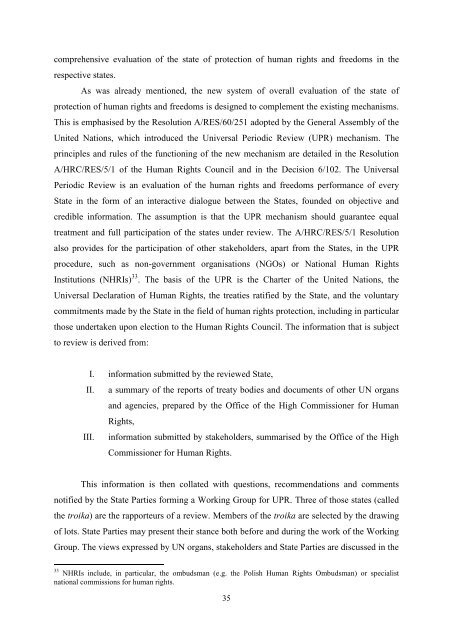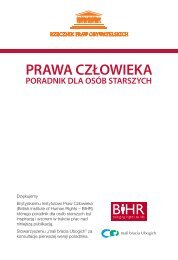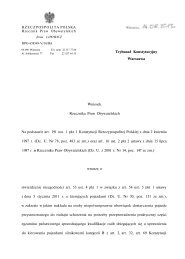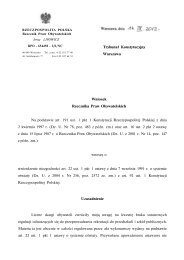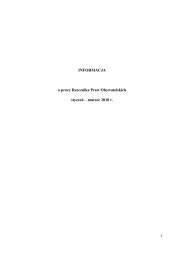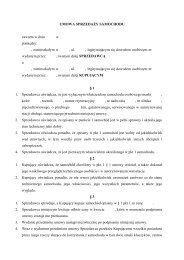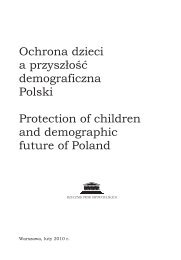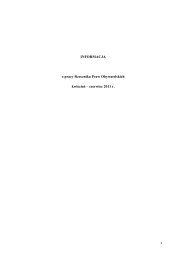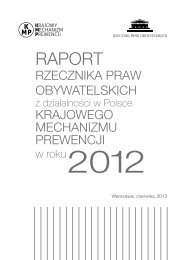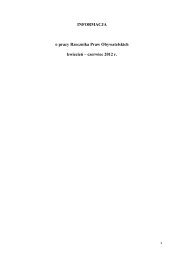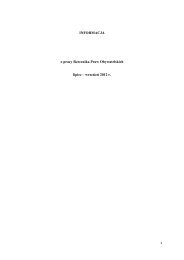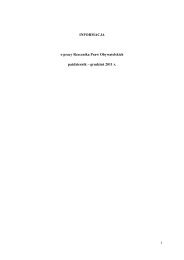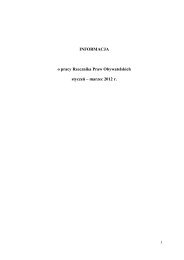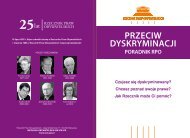Prawa człowieka w krajach Partnerstwa Wschodniego UE z ...
Prawa człowieka w krajach Partnerstwa Wschodniego UE z ...
Prawa człowieka w krajach Partnerstwa Wschodniego UE z ...
You also want an ePaper? Increase the reach of your titles
YUMPU automatically turns print PDFs into web optimized ePapers that Google loves.
comprehensive evaluation of the state of protection of human rights and freedoms in the<br />
respective states.<br />
As was already mentioned, the new system of overall evaluation of the state of<br />
protection of human rights and freedoms is designed to complement the existing mechanisms.<br />
This is emphasised by the Resolution A/RES/60/251 adopted by the General Assembly of the<br />
United Nations, which introduced the Universal Periodic Review (UPR) mechanism. The<br />
principles and rules of the functioning of the new mechanism are detailed in the Resolution<br />
A/HRC/RES/5/1 of the Human Rights Council and in the Decision 6/102. The Universal<br />
Periodic Review is an evaluation of the human rights and freedoms performance of every<br />
State in the form of an interactive dialogue between the States, founded on objective and<br />
credible information. The assumption is that the UPR mechanism should guarantee equal<br />
treatment and full participation of the states under review. The A/HRC/RES/5/1 Resolution<br />
also provides for the participation of other stakeholders, apart from the States, in the UPR<br />
procedure, such as non-government organisations (NGOs) or National Human Rights<br />
Institutions (NHRIs) 33 . The basis of the UPR is the Charter of the United Nations, the<br />
Universal Declaration of Human Rights, the treaties ratified by the State, and the voluntary<br />
commitments made by the State in the field of human rights protection, including in particular<br />
those undertaken upon election to the Human Rights Council. The information that is subject<br />
to review is derived from:<br />
I. information submitted by the reviewed State,<br />
II. a summary of the reports of treaty bodies and documents of other UN organs<br />
and agencies, prepared by the Office of the High Commissioner for Human<br />
Rights,<br />
III. information submitted by stakeholders, summarised by the Office of the High<br />
Commissioner for Human Rights.<br />
This information is then collated with questions, recommendations and comments<br />
notified by the State Parties forming a Working Group for UPR. Three of those states (called<br />
the troika) are the rapporteurs of a review. Members of the troika are selected by the drawing<br />
of lots. State Parties may present their stance both before and during the work of the Working<br />
Group. The views expressed by UN organs, stakeholders and State Parties are discussed in the<br />
33 NHRIs include, in particular, the ombudsman (e.g. the Polish Human Rights Ombudsman) or specialist<br />
national commissions for human rights.<br />
35


